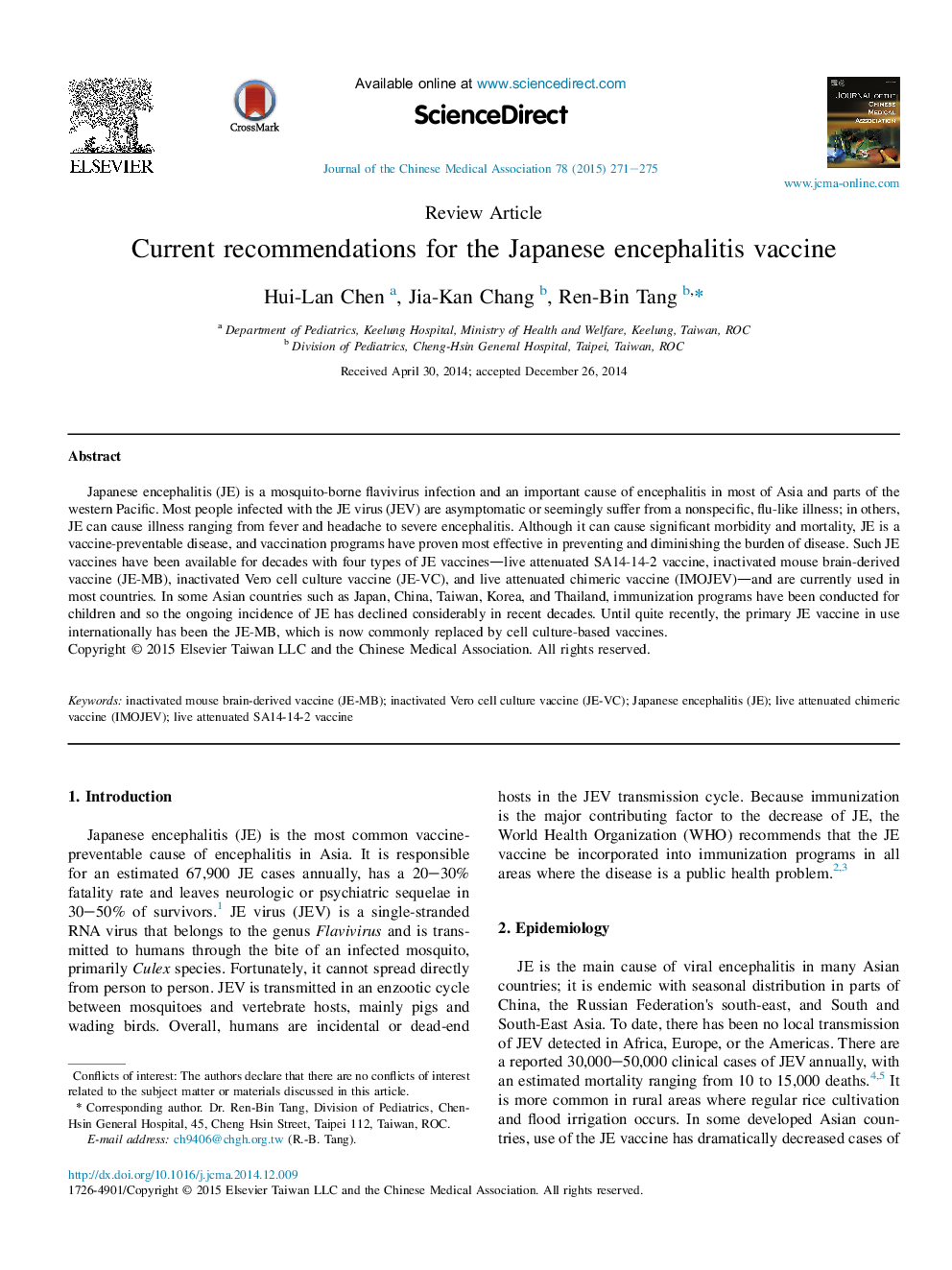| Article ID | Journal | Published Year | Pages | File Type |
|---|---|---|---|---|
| 3476092 | Journal of the Chinese Medical Association | 2015 | 5 Pages |
Japanese encephalitis (JE) is a mosquito-borne flavivirus infection and an important cause of encephalitis in most of Asia and parts of the western Pacific. Most people infected with the JE virus (JEV) are asymptomatic or seemingly suffer from a nonspecific, flu-like illness; in others, JE can cause illness ranging from fever and headache to severe encephalitis. Although it can cause significant morbidity and mortality, JE is a vaccine-preventable disease, and vaccination programs have proven most effective in preventing and diminishing the burden of disease. Such JE vaccines have been available for decades with four types of JE vaccines—live attenuated SA14-14-2 vaccine, inactivated mouse brain-derived vaccine (JE-MB), inactivated Vero cell culture vaccine (JE-VC), and live attenuated chimeric vaccine (IMOJEV)—and are currently used in most countries. In some Asian countries such as Japan, China, Taiwan, Korea, and Thailand, immunization programs have been conducted for children and so the ongoing incidence of JE has declined considerably in recent decades. Until quite recently, the primary JE vaccine in use internationally has been the JE-MB, which is now commonly replaced by cell culture-based vaccines.
